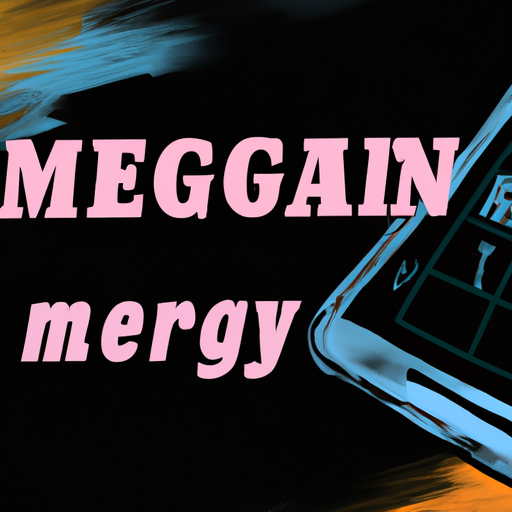
-
TopCasino Slots On-line Slots, Blackjack, Roulette, Betting & Gambling Evaluations & Guides: TOC
- Introduction
- The Relationship Between Gambling and Mental Health
- The Economic Impact of Gambling on Society
- The Role of Social Media in Promoting Gambling
- The Ethics of Gambling Advertising
- The Effectiveness of Responsible Gambling Programs
- The Impact of Problem Gambling on Families and Relationships
- The Connection Between Gambling and Crime
- The Influence of Culture on Attitudes Towards Gambling
- The Stigma Surrounding Problem Gambling
- The Role of Government in Regulating the Gambling Industry
- The Impact of Online Gambling on Society
- The Connection Between Substance Abuse and Problem Gambling
- The Effectiveness of Treatment Programs for Problem Gamblers
- The Role of Education in Preventing Problem Gambling
- The Future of the Gambling Industry: Trends and Predictions
- Q&A
- Conclusion
"Exploring the Complexities of Gambling's Results on Society by way of Educational Research"
Introduction
The Social Impact of Gambling: Insights from University Studies is a matter that has gained vital consideration lately. Numerous research have been carried out to know the social impression of playing on people, households, and communities. These research provide insights into the optimistic and destructive effects of playing on society. In this article, we will discover some of the key findings from university research on the social impression of playing.
The Relationship Between Gambling and Psychological Well being
Gambling has been a popular pastime for hundreds of years, with people from all walks of life taking part in numerous varieties of playing. Whereas some people gamble for fun and entertainment, others might develop a playing addiction that may have severe penalties on their psychological well being.
A number of university research have explored the relationship between playing and psychological well being, shedding mild on the social impression of playing. One research carried out by researchers at the University of Calgary found that people who interact in drawback playing are more more likely to expertise melancholy, nervousness, and substance abuse problems.
The research additionally found that drawback gamblers have been more more likely to report suicidal ideas and makes an attempt than non-drawback gamblers. These findings counsel that there's a sturdy hyperlink between drawback playing and poor psychological well being outcomes.
One other research carried out by researchers at the University of Nevada, Las Vegas, examined the impression of playing on college college students' psychological well being. The research found that college college students who gambled often have been more more likely to expertise melancholy and nervousness than those that did not gamble.
The researchers additionally found that college students who reported increased ranges of stress have been more more likely to interact in problematic playing behaviors. This means that stress could also be a contributing issue to the improvement of drawback playing among college college students.
A 3rd research carried out by researchers at the University of British Columbia explored the relationship between playing and social isolation. The research found that people who interact in drawback playing are more more likely to expertise social isolation and loneliness than non-drawback gamblers.
The researchers additionally found that social isolation was a vital predictor of drawback playing habits. This means that addressing social isolation could also be an important part of stopping or treating drawback playing.
General, these research spotlight the significance of understanding the social impression of playing on psychological well being. Whereas some people might be able to gamble with out experiencing destructive penalties, others might develop a severe addiction that may have far-reaching effects on their well-being.
It's important for policymakers and healthcare professionals to acknowledge the potential dangers associated with drawback playing and to develop methods for stopping and treating this condition. This may increasingly include growing public consciousness of the dangers associated with playing, offering resources for people who're struggling with drawback playing, and implementing insurance policies that promote accountable playing practices.
In conclusion, the relationship between playing and psychological well being is advanced and multifaceted. Whereas some people might be able to gamble with out experiencing destructive penalties, others might develop a severe addiction that may have severe implications for their psychological well being and well-being.
University research have supplied beneficial insights into the social impression of playing, highlighting the want for elevated consciousness and support for people who're struggling with drawback playing. By addressing this situation head-on, we are able to work in the direction of creating a safer and more healthy society for all.
The Financial Impact of Gambling on Society
Gambling has been a half of human society for hundreds of years, and it continues to be a popular pastime today. Whereas many people enjoy playing as a form of entertainment, there are additionally considerations about its impression on society. One space of concern is the financial impression of playing on society.
A number of university research have examined the financial impression of playing on society. These research have checked out each the optimistic and destructive effects of playing on the financial system.
One optimistic impact of playing is that it can generate revenue for governments. In many countries, governments regulate and tax playing actions, which can provide a vital supply of earnings. For instance, in the United States, state lotteries generate billions of dollars in revenue annually.
One other optimistic impact of playing is that it can create jobs. Casinos and different playing institutions make use of 1000's of people, from dealers to security personnel to hotel workers. In areas the place there are few job opportunities, casinos can provide a lot-wanted employment.
Nonetheless, there are additionally destructive financial impacts associated with playing. One concern is that playing can result in elevated crime rates. Studies have proven that areas with high ranges of playing exercise usually expertise increased rates of crime, including theft and fraud.
One other concern is that playing can result in financial problems for people and households. Individuals who gamble excessively might spend cash they can't afford to lose, resulting in debt and financial hardship. This will have ripple effects all through the financial system, as people who're struggling financially could also be much less more likely to spend cash on different items and services.
In addition to those financial impacts, there are additionally social impacts associated with playing. One concern is that playing can result in addiction. Individuals who grow to be hooked on playing might expertise a range of destructive penalties, including financial problems, relationship points, and psychological well being problems.
One other social impression of playing is that it can contribute to inequality in society. Studies have proven that people from decrease socioeconomic backgrounds are more more likely to develop drawback playing behaviors than these from increased socioeconomic backgrounds. This will exacerbate present inequalities in society, as people who're already struggling financially could also be more more likely to expertise the destructive penalties of playing.
General, the financial and social impacts of playing are advanced and multifaceted. Whereas there are definitely optimistic elements to playing, comparable to job creation and revenue era, there are additionally vital considerations about its destructive impacts on people and society as a entire.
As governments continue to grapple with the situation of playing regulation, it is important to contemplate each the financial and social impacts of this exercise. By taking a holistic method that considers all elements of playing's impression on society, policymakers can make knowledgeable choices that balance the advantages and costs of this popular pastime.
The Role of Social Media in Promoting Gambling
Gambling has been a popular pastime for hundreds of years, but with the rise of social media, it has grow to be more accessible and widespread than ever before. Social media platforms like Facebook, Twitter, and Instagram have made it easier for people to connect with others who share their curiosity in playing. Nonetheless, this elevated accessibility has additionally raised considerations about the potential destructive impression of playing on people and society as a entire.
A number of university research have explored the function of social media in selling playing and its impression on society. One research carried out by researchers at the University of Bristol found that social media platforms are more and more being used to advertise online playing. The research analyzed over 800 tweets related to online playing and found that many of them have been promotional in nature, offering bonuses or free bets to entice customers to gamble.
One other research carried out by researchers at the University of Warwick found that social media could be a highly effective software for selling playing addiction. The research surveyed over 1,000 adults who had gambled online in the previous 12 months and found that those that used social media to access online playing sites have been more more likely to develop a playing addiction than those that did not use social media.
The use of social media influencers to advertise playing has additionally come beneath scrutiny. In latest years, many celebrities and influencers have been paid to advertise online casinos and sports betting sites on their social media accounts. This practice has raised considerations about the potential hurt it might trigger, significantly among younger people who could also be more vulnerable to look stress.
Regardless of these considerations, some argue that social media may also be used as a force for good when it involves selling accountable playing. For instance, some online casinos and sports betting sites have started utilizing social media platforms to provide details about accountable playing practices and provide support services for these struggling with addiction.
General, the impression of social media on playing is advanced and multifaceted. Whereas it has undoubtedly made playing more accessible than ever before, it has additionally raised considerations about the potential destructive impression on people and society as a entire. As such, it is important for policymakers, regulators, and business stakeholders to work collectively to make sure that social media is used responsibly when it involves selling playing. This may increasingly contain implementing stricter rules around promoting and promotion, as well as offering more support services for these struggling with addiction.
In conclusion, the function of social media in selling playing is a matter that requires cautious consideration and consideration from all stakeholders. Whereas social media could be a highly effective software for selling accountable playing practices, it may also be used to advertise addiction and hurt. As such, it is important for policymakers and business stakeholders to work collectively to seek out solutions that balance the advantages of social media with the want to guard weak people from hurt.
The Ethics of Gambling Advertising
Gambling has been a popular pastime for hundreds of years, with people from all walks of life enjoying the thrill of inserting bets and hoping to win big. Nonetheless, as playing has grow to be more widespread and accessible, considerations have arisen about its social impression. One space of specific concern is the ethics of playing promoting.
Advertising is a highly effective software that may affect people's habits and attitudes. In the case of playing promoting, it can encourage people to gamble more than they in any other case would, or to view playing as a innocent exercise somewhat than one with potential dangers and destructive penalties.
A number of university research have explored the social impression of playing promoting. One research carried out by researchers at Monash University in Australia found that publicity to playing promoting was associated with an elevated chance of drawback playing. The research surveyed over 2,000 adults and found that those that had seen more playing adverts have been more more likely to expertise problems related to their playing habits.
One other research carried out by researchers at the University of Bergen in Norway found that playing promoting can contribute to a normalization of playing habits. The research surveyed over 6,000 adolescents and found that those that had been uncovered to more playing adverts have been more more likely to view playing as a regular and acceptable exercise.
These findings are regarding as a result of drawback playing can have severe destructive penalties for people and society as a entire. Problem gamblers might expertise financial difficulties, relationship problems, and psychological well being points comparable to melancholy and nervousness. In addition, drawback playing can result in crime and different social problems.
Given these considerations, many countries have carried out rules on playing promoting. For instance, in the UK, there are strict guidelines on when and the place playing adverts could be proven on TV or online. Ads should not goal kids or weak teams, and they have to include accountable playing messages.
Nonetheless, some argue that these rules don't go far sufficient. Critics argue that even with these rules in place, there's nonetheless an excessive amount of publicity to playing promoting in society. They argue that more must be done to cut back the amount of playing promoting and to make sure that it shouldn't be concentrating on weak teams.
In addition, some have known as for a ban on all playing promoting. They argue that playing is a dangerous exercise that shouldn't be promoted in any way. Nonetheless, others argue that a full ban on playing promoting could be too excessive and would infringe on people's freedom to decide on how they spend their cash.
Finally, the ethics of playing promoting are advanced and controversial. Whereas there's proof to counsel that publicity to playing adverts can contribute to drawback playing and the normalization of playing habits, there are additionally arguments in favor of permitting people to make their own selections about whether or not or to not gamble.
As society continues to grapple with these points, it is important for policymakers, researchers, and the public at massive to interact in open and honest discussions about the social impression of playing and the function of promoting in selling or discouraging this exercise. By working collectively, we are able to be certain that our communities are safe and healthy places for everybody.
The Effectiveness of Accountable Gambling Packages
Gambling has been a popular pastime for hundreds of years, but it shouldn't be with out its destructive penalties. The social impression of playing could be vital, affecting people, households, and communities. Nonetheless, accountable playing programs have been developed to mitigate these destructive effects. In this article, we will discover the effectiveness of these programs based on insights from university research.
Accountable playing programs intention to advertise safe and accountable playing practices whereas minimizing the hurt brought about by drawback playing. These programs usually include training and consciousness campaigns, self-exclusion options, and support services for individuals who could also be struggling with addiction.
One research carried out by researchers at the University of Sydney found that accountable playing programs could be efficient in lowering drawback playing habits. The research analyzed information from over 1,000 contributors who had enrolled in a self-exclusion program at a native casino. The results confirmed that contributors who accomplished the program have been much less more likely to expertise playing-related hurt than those that did not full the program.
One other research carried out by researchers at the University of Nevada found that accountable playing programs may have a optimistic impression on the attitudes and behaviors of casino staff. The research surveyed over 500 casino staff before and after they received coaching on accountable playing practices. The results confirmed that staff who received coaching have been more more likely to acknowledge indicators of drawback playing and intervene when needed.
Nonetheless, not all accountable playing programs are created equal. A research carried out by researchers at Monash University in Australia found that some self-exclusion programs might not be efficient in stopping drawback playing habits. The research analyzed information from over 2,000 contributors who had enrolled in a self-exclusion program at a native casino. The results confirmed that only a small percentage of contributors truly adopted by way of with their self-exclusion settlement.
Regardless of these blended findings, there's nonetheless hope for the effectiveness of accountable playing programs. One promising method is the use of personalised feedback interventions (PFIs). PFIs provide people with personalised details about their playing habits and the potential dangers associated with it. A research carried out by researchers at the University of Alberta found that PFIs could be efficient in lowering drawback playing habits.
In conclusion, accountable playing programs have the potential to mitigate the destructive social impression of playing. Nonetheless, not all programs are equally efficient, and more analysis is required to find out which approaches are most profitable. Customized feedback interventions present promise as a promising method to lowering drawback playing habits. As playing continues to be a popular pastime, it is important for people, households, and communities to remember of the potential dangers and search assist when needed.
The Impact of Problem Gambling on Households and Relationships
Gambling has been a popular pastime for hundreds of years, with people from all walks of life enjoying the thrill of inserting bets and probably winning big. Nonetheless, whereas playing could be a fun and innocent exercise for a lot of, it may have severe penalties for individuals who develop a drawback with it.
One space the place the destructive impression of drawback playing is especially evident is in households and relationships. In accordance with analysis carried out by numerous universities around the world, drawback playing can result in a range of points that may strain even the strongest of relationships.
One of the most vital impacts of drawback playing on households is financial stress. When someone develops a playing addiction, they might start to spend more cash than they will afford on their behavior. This will result in debt, missed bill payments, and different financial problems that may put a strain on family funds.
In addition to financial stress, drawback playing may trigger emotional turmoil inside households. Those who battle with playing addiction might grow to be distant or secretive, hiding their habits from family members and avoiding spending time with them in order to gamble as an alternative. This will result in emotions of betrayal and distrust among family members.
Moreover, drawback playing may result in psychological well being points comparable to nervousness and melancholy. The fixed stress of making an attempt to cover their addiction or deal with the penalties of their habits can take a toll on people struggling with drawback playing, as well as their family members who're affected by it.
Research has additionally proven that kids are significantly weak to the destructive effects of drawback playing inside households. Kids who develop up in households the place one or each mother and father have a playing addiction might expertise neglect or abuse as a consequence of their dad or mum's preoccupation with playing. They may additionally be uncovered to financial instability and different stressors that may impression their improvement and wellbeing.
Regardless of these challenges, there's hope for these struggling with drawback playing and their households. Many universities provide counseling services particularly designed for people dealing with addiction points, including these related to playing. These services can provide support and steering for people and households as they navigate the challenges of addiction and work in the direction of restoration.
In addition, there are a quantity of resources obtainable online and in-individual that may assist people struggling with drawback playing. These include support teams, self-assist books, and online forums the place people can connect with others who're going by way of related experiences.
Finally, it is important for people struggling with drawback playing to hunt assist as quickly as potential in order to reduce the destructive impression on themselves and their family members. By taking steps in the direction of restoration, people can start to rebuild relationships, regain financial stability, and enhance their total wellbeing.
In conclusion, whereas playing could be a fun and innocent exercise for a lot of, it is important to acknowledge the potential destructive impression it can have on households and relationships when it turns into a drawback. By understanding the dangers associated with drawback playing and searching for assist when wanted, people can take control of their addiction and work in the direction of a brighter future for themselves and their family members.
The Connection Between Gambling and Crime
Gambling has been a popular pastime for hundreds of years, with people from all walks of life taking part in numerous varieties of playing. Whereas some people gamble for entertainment functions, others achieve this to make cash or to flee their problems. Nonetheless, the social impression of playing is commonly ignored, and it can have severe penalties on people and society as a entire.
One of the most vital considerations concerning playing is its connection to crime. A number of university research have explored this hyperlink and found that there's a sturdy correlation between playing and legal habits.
In accordance with a research carried out by the University of Illinois at Chicago, people who interact in drawback playing are more more likely to commit crimes comparable to theft, fraud, embezzlement, and drug offenses. The research additionally found that drawback gamblers have been more more likely to have a historical past of legal habits before they started playing.
One other research carried out by the University of Windsor in Canada found that drawback gamblers have been more more likely to interact in unlawful actions comparable to prostitution and drug trafficking. The research additionally found that drawback gamblers have been more more likely to have a historical past of substance abuse and psychological well being points.
The hyperlink between playing and crime could be attributed to a number of elements. One issue is the financial strain that playing may cause. People who gamble excessively might discover themselves in debt or struggling financially, which can make them resort to legal actions to make ends meet.
One other issue is the psychological impression of playing addiction. Problem gamblers might expertise emotions of desperation and hopelessness after they lose cash or fail to win big. These destructive feelings can make them interact in impulsive behaviors comparable to stealing or committing fraud.
Moreover, the accessibility of online playing has made it easier for people to interact in unlawful actions comparable to cash laundering and id theft. On-line casinos might appeal to criminals who use stolen credit cards or different fraudulent means to fund their accounts.
The social impression of playing-related crime extends past the particular person stage. Communities might endure from the destructive effects of playing-related crime, comparable to elevated rates of theft and drug offenses. The costs associated with investigating and prosecuting playing-related crimes may place a burden on legislation enforcement businesses and taxpayers.
To deal with the connection between playing and crime, universities have carried out analysis to determine efficient prevention and intervention methods. One method is to provide training and consciousness programs to people who could also be at risk of creating a playing drawback. These programs might help people acknowledge the indicators of drawback playing and search assist before their habits escalates.
One other method is to provide support services for people who're struggling with playing addiction. Counseling, remedy, and support teams might help drawback gamblers overcome their addiction and keep away from participating in legal actions.
In conclusion, the social impression of playing can't be ignored, significantly its connection to crime. University research have proven that there's a sturdy correlation between drawback playing and legal habits. To deal with this situation, it is important to provide training, consciousness, and support services for people who could also be at risk of creating a playing drawback. By doing so, we are able to scale back the destructive impression of playing on people and society as a entire.
The Affect of Tradition on Attitudes In the direction of Gambling
Gambling has been a half of human culture for hundreds of years, and its recognition continues to develop. Nonetheless, attitudes in the direction of playing range extensively throughout totally different cultures. In this article, we will discover the affect of culture on attitudes in the direction of playing, drawing insights from university research.
One research carried out by researchers at the University of Macau found that Chinese language people are inclined to have a more destructive angle in the direction of playing than Westerners. That is due partly to the indisputable fact that playing is prohibited in China, and is associated with corruption and organized crime. In distinction, Western societies are inclined to view playing as a official form of entertainment.
One other research carried out by researchers at the University of Nevada found that attitudes in the direction of playing are influenced by non secular beliefs. For instance, people who determine as Christian or Muslim are inclined to have a more destructive angle in the direction of playing than those that don't determine with any faith. It is because many religions view playing as a sin or immoral exercise.
In addition to faith, cultural values additionally play a function in shaping attitudes in the direction of playing. A research carried out by researchers at the University of Alberta found that people from collectivist cultures (comparable to Japan and China) are inclined to view playing as a social exercise that strengthens relationships between mates and family members. In distinction, people from individualistic cultures (comparable to the United States) are inclined to view playing as a person pursuit that may result in private gain or loss.
The impression of culture on attitudes in the direction of playing may also be seen in the way that totally different societies regulate and control playing actions. For instance, some countries (comparable to Singapore) have strict legal guidelines towards all varieties of playing, whereas others (comparable to Australia) have more relaxed rules that allow for a vast range of gaming actions.
Regardless of these variations in cultural attitudes in the direction of playing, there are some common elements that contribute to drawback playing habits. One such issue is the availability of playing opportunities. Studies have proven that people who stay close to casinos or different gaming institutions are more more likely to develop playing problems than those that would not have easy access to those venues.
One other issue that contributes to drawback playing is the use of electronic gaming machines (EGMs), comparable to slot machines. EGMs are designed to be highly addictive, and can result in fast and vital financial losses. Studies have proven that people who play EGMs are more more likely to develop playing problems than those that play different sorts of video games.
In conclusion, attitudes in the direction of playing are formed by a variety of cultural elements, including faith, values, and rules. Whereas some cultures view playing as a innocent form of entertainment, others see it as a dangerous exercise that may result in addiction and financial damage. Regardless of cultural attitudes, nevertheless, it is important for people to remember of the dangers associated with playing and to hunt assist in the event that they really feel that their habits is becoming problematic.
The Stigma Surrounding Problem Gambling
Gambling has been a popular pastime for hundreds of years, with people from all walks of life enjoying the thrill of inserting bets and probably winning big. Nonetheless, playing may have destructive penalties, significantly for individuals who develop a drawback with it.
Problem playing is a severe situation that impacts millions of people around the world. It's characterised by an lack of ability to control one's playing habits, regardless of destructive penalties comparable to financial problems, relationship points, and psychological well being considerations. Sadly, there's nonetheless a vital stigma surrounding drawback playing, which can make it difficult for these affected to hunt assist.
University research have make clear the social impression of playing and the stigma surrounding drawback playing. One research carried out by researchers at the University of Nevada found that people with playing problems are sometimes considered negatively by society. Members in the research reported feeling ashamed and embarrassed about their playing habits, which led them to cover their addiction from others.
One other research carried out by researchers at the University of Calgary found that drawback gamblers are sometimes blamed for their addiction. Members in this research reported feeling judged and stigmatized by others who believed that they need to simply be capable of cease playing in the event that they wished to.
The stigma surrounding drawback playing can have severe penalties for these affected. It could result in emotions of isolation and disgrace, which can make it even more difficult for people to hunt assist. In addition, the stigma can stop society from recognizing drawback playing as a official addiction and offering satisfactory resources for therapy.
Happily, there are steps that may be taken to cut back the stigma surrounding drawback playing. One method is to extend public consciousness about the nature of addiction and its impression on people and society as a entire. This may be done by way of training campaigns and public service bulletins that spotlight the dangers associated with drawback playing.
One other method is to provide support services for people struggling with drawback playing. This consists of counseling services, support teams, and different resources that may assist people overcome their addiction and rebuild their lives. By offering these services, society can display its dedication to serving to these affected by drawback playing and scale back the stigma associated with the addiction.
In conclusion, the social impression of playing is advanced and multifaceted. Whereas playing could be a fun and innocent pastime for a lot of people, it may result in severe problems for individuals who develop an addiction. The stigma surrounding drawback playing can make it difficult for people to hunt assist and can stop society from recognizing the seriousness of the situation. Nonetheless, by growing public consciousness and offering support services for these affected, we are able to scale back the stigma surrounding drawback playing and assist people overcome their addiction.
The Role of Government in Regulating the Gambling Industry
Gambling has been a half of human society for hundreds of years, and it continues to be a popular pastime today. Nonetheless, the social impression of playing is a matter that has been debated for simply as long. Whereas some argue that playing can have optimistic effects on communities, others believe that it can result in addiction, financial damage, and different destructive penalties.
University research have make clear the social impression of playing, offering insights into how it impacts people and communities. One space of analysis that has received specific consideration is the function of authorities in regulating the playing business.
Governments around the world have totally different approaches to regulating playing. Some countries have strict legal guidelines that prohibit all varieties of playing, whereas others allow certain sorts of playing but closely regulate them. In some cases, governments even function their own casinos or lotteries.
One cause why governments regulate playing is to guard customers from fraud and different unlawful actions. By licensing and monitoring casinos and different playing institutions, governments can be certain that they're working pretty and transparently. They may implement legal guidelines towards cash laundering and different legal actions that could be associated with playing.
Another excuse why governments regulate playing is to generate revenue for public services. Many countries depend on taxes from the playing business to fund training, healthcare, and different important services. In some cases, governments might even use revenue from playing to support programs that deal with drawback playing or provide therapy for individuals who are addicted.
Nonetheless, there are additionally considerations about the destructive social impression of playing. Studies have proven that people who gamble excessively are more more likely to expertise financial problems, relationship points, and psychological well being problems comparable to melancholy and nervousness. Gambling addiction may result in legal habits comparable to theft or embezzlement.
To deal with these considerations, some governments have carried out measures comparable to self-exclusion programs or necessary pre-dedication limits on how a lot cash people can spend on playing. These measures intention to assist people who're at risk of creating a playing drawback to control their habits and search assist if needed.
Nonetheless, critics argue that these measures usually are not sufficient to handle the social impression of playing. They level out that the playing business continues to be largely pushed by revenue, and that governments could also be reluctant to implement more stringent rules for worry of shedding revenue.
Finally, the social impression of playing is a advanced situation that requires cautious consideration from policymakers, researchers, and the public. Whereas there are definitely advantages to regulating the playing business, it is important to additionally take into account the potential destructive penalties and take steps to mitigate them.
University research have supplied beneficial insights into the social impression of playing and the function of authorities in regulating the business. By persevering with to review this situation and participating in open dialogue with stakeholders, we are able to work in the direction of creating a more accountable and sustainable playing business that advantages everybody concerned.
The Impact of On-line Gambling on Society
Gambling has been a half of human culture for hundreds of years, and with the advent of expertise, online playing has grow to be more and more popular. Whereas some people view playing as a innocent form of entertainment, others argue that it can have destructive social impacts. In this article, we will discover the impression of online playing on society, drawing insights from university research.
One of the most vital social impacts of online playing is its potential to result in addiction. In accordance with a research carried out by the University of California, Los Angeles (UCLA), online gamblers are more more likely to develop addictive behaviors than those that gamble in individual. It is because online playing is more accessible and handy, making it easier for people to interact in extreme playing habits.
Moreover, online playing may result in financial problems for people and their households. A research carried out by the University of Bristol found that online gamblers have been more more likely to expertise financial difficulties than those that gambled in individual. It is because online playing permits people to gamble from the consolation of their own houses with out any live boundaries or limitations.
One other social impression of online playing is its potential to contribute to drawback playing among younger people. A research carried out by the University of Nevada found that younger adults who engaged in online playing have been more more likely to develop drawback playing behaviors than those that did not gamble in any respect. It is because younger people are more vulnerable to look stress and could also be influenced by their friends' attitudes in the direction of playing.
Furthermore, online playing may have destructive impacts on psychological well being. A research carried out by the University of Sydney found that people who engaged in extreme online playing have been more more likely to expertise melancholy and nervousness than those that did not gamble in any respect. It is because extreme playing can result in emotions of guilt, disgrace, and low self-esteem.
Regardless of these destructive social impacts, some argue that online playing may have optimistic effects on society. For instance, it can generate revenue for governments and create jobs in the playing business. Moreover, online playing can provide a form of entertainment for people who might not have access to different varieties of entertainment.
In conclusion, online playing has each optimistic and destructive social impacts on society. Whereas it can generate revenue and provide entertainment, it may result in addiction, financial problems, drawback playing among younger people, and destructive impacts on psychological well being. As such, it is important for governments and people to remember of these potential impacts and take steps to mitigate them. This may increasingly include implementing rules to forestall extreme playing habits or offering support services for people who're struggling with addiction or financial difficulties as a consequence of their playing habits.
The Connection Between Substance Abuse and Problem Gambling
Gambling has been a popular pastime for hundreds of years, with people from all walks of life enjoying the thrill of inserting bets and hoping to win big. Nonetheless, as with any exercise that entails risk-taking, there are potential destructive penalties associated with playing. One such consequence is drawback playing, which can have a vital impression on people and society as a entire.
Current research carried out by universities around the world have make clear the connection between drawback playing and substance abuse. In accordance with these research, people who battle with drawback playing are more more likely to additionally battle with substance abuse points.
One research carried out by researchers at the University of Calgary found that people who reported drawback playing have been more more likely to report utilizing medication or alcohol in the previous 12 months. The research additionally found that those that reported each drawback playing and substance abuse had increased rates of psychological well being points comparable to melancholy and nervousness.
One other research carried out by researchers at the University of Connecticut found that people who struggled with each drawback playing and substance abuse have been more more likely to expertise financial problems, legal points, and relationship difficulties than those that only struggled with one of these points.
These findings counsel that there's a sturdy connection between drawback playing and substance abuse, and that addressing each points concurrently could also be needed for efficient therapy.
So why do these two points usually go hand in hand? There are a number of theories as to why this could also be the case. One concept is that people who battle with addiction could also be more liable to participating in dangerous behaviors comparable to playing. One other concept is that the thrill-searching for nature of each actions could also be interesting to some people.
Regardless of the causes behind this connection, it is evident that addressing each drawback playing and substance abuse is essential for bettering outcomes for these struggling with these points. This may increasingly contain searching for out specialised therapy programs that deal with each points concurrently, or working with healthcare professionals who're educated in treating co-occurring problems.
In addition to the particular person impression of drawback playing and substance abuse, there are additionally broader societal implications to contemplate. For instance, drawback playing can result in financial difficulties for people and households, which can in turn impression the financial system as a entire. Moreover, substance abuse points can result in elevated healthcare costs and strain on social services.
Recognizing the connection between drawback playing and substance abuse is an important step in addressing these points. By working to enhance access to therapy and support for these struggling with these points, we might help scale back the destructive impression of drawback playing and substance abuse on people and society as a entire.
In conclusion, whereas playing might look like a innocent pastime for some, it is important to acknowledge that there are potential destructive penalties associated with this exercise. The connection between drawback playing and substance abuse is only one instance of how participating in dangerous behaviors can have far-reaching impacts. By taking steps to handle each points concurrently, we are able to work in the direction of bettering outcomes for these struggling with these points and lowering their impression on society as a entire.
The Effectiveness of Therapy Packages for Problem Gamblers
Gambling is a popular pastime for a lot of people around the world. Nonetheless, for some people, playing can grow to be a drawback that negatively impacts their lives and the lives of these around them. In latest years, universities have carried out research to better perceive the social impression of playing and to develop efficient therapy programs for drawback gamblers.
One research carried out by researchers at the University of Sydney found that cognitive-behavioral remedy (CBT) was an efficient therapy for drawback gamblers. CBT is a type of remedy that focuses on altering destructive thought patterns and behaviors. The research found that contributors who received CBT confirmed vital enhancements in their playing habits in comparison with those that did not receive the remedy.
One other research carried out by researchers at the University of Nevada, Las Vegas found that self-exclusion programs have been efficient in lowering drawback playing habits. Self-exclusion programs allow people to voluntarily ban themselves from coming into casinos or different playing institutions. The research found that contributors who enrolled in self-exclusion programs have been much less more likely to gamble and had fewer destructive penalties related to their playing habits.
Nonetheless, not all therapy programs are equally efficient. A research carried out by researchers at the University of Minnesota found that Gamblers Nameless (GA), a 12-step program just like Alcoholics Nameless, was not as efficient as different therapy options. The research found that contributors who attended GA conferences had increased rates of relapse in comparison with those that received different varieties of therapy.
In addition to creating efficient therapy programs, universities have additionally studied the social impression of playing on communities. One research carried out by researchers at the University of Lethbridge in Canada found that communities with high ranges of playing exercise had increased rates of crime and chapter in comparison with communities with decrease ranges of playing exercise.
One other research carried out by researchers at the University of Illinois found that people who stay close to casinos are more more likely to expertise financial problems and psychological well being points related to their playing habits. The research additionally found that people who stay close to casinos are more more likely to have destructive perceptions of their group and to really feel much less safe in their neighborhood.
General, the research carried out by universities provide beneficial insights into the social impression of playing and the effectiveness of therapy programs for drawback gamblers. Whereas some therapy options, comparable to CBT and self-exclusion programs, have been proven to be efficient, others, comparable to GA, might not be as efficient. Moreover, communities with high ranges of playing exercise might expertise destructive penalties related to crime and chapter. As playing continues to be a popular pastime around the world, it is important for people and communities to remember of the potential social impression and to hunt out efficient therapy options when needed.
The Role of Training in Stopping Problem Gambling
Gambling has been a popular pastime for hundreds of years, with people from all walks of life taking part in numerous varieties of playing. Whereas some people gamble for fun and entertainment, others might develop a drawback with playing that may have severe social and financial penalties.
In latest years, universities have carried out research to better perceive the social impression of playing and how training can play a function in stopping drawback playing. These research have make clear the significance of educating people about the dangers associated with playing and offering resources for individuals who could also be struggling with addiction.
One research carried out by researchers at the University of Nevada found that training could be an efficient software in stopping drawback playing. The research surveyed over 1,000 college college students and found that those that received training about accountable playing have been much less more likely to develop a drawback with playing than those that did not receive any training.
The research additionally found that college students who received training about accountable playing have been more more likely to search assist in the event that they did develop a drawback with playing. This highlights the significance of offering resources and support for people who could also be struggling with addiction.
One other research carried out by researchers at the University of Calgary found that training may play a function in lowering stigma surrounding drawback playing. The research surveyed over 500 adults and found that those that received training about drawback playing have been more more likely to view it as a public well being situation somewhat than a private weak point or ethical failing.
That is important as a result of stigma surrounding drawback playing can stop people from searching for assist and can result in emotions of disgrace and isolation. By lowering stigma by way of training, people could also be more more likely to search assist and receive the support they want.
In addition to offering training about accountable playing and lowering stigma, universities are additionally taking steps to provide resources for people who could also be struggling with addiction. Many universities now provide counseling services particularly for college students who're dealing with addiction points, including drawback playing.
These counseling services can provide support for people who could also be struggling with addiction, as well as resources for family members and mates who could also be affected by a liked one's addiction. By offering these resources, universities are serving to to create a supportive setting for people who could also be struggling with addiction.
General, the social impression of playing is advanced and multifaceted. Whereas some people might gamble for fun and entertainment, others might develop a drawback with playing that may have severe social and financial penalties. Through training and support, universities can play a function in stopping drawback playing and offering resources for individuals who could also be struggling with addiction.
As more analysis is carried out on the social impression of playing, it is probably going that universities will continue to play an important function in addressing this situation. By working collectively to provide training, scale back stigma, and provide resources for individuals who want it, we might help to create a safer and more supportive setting for people who could also be struggling with addiction.
The Future of the Gambling Industry: Trends and Predictions
The playing business has been a matter of debate for a few years, with some arguing that it is a innocent form of entertainment whereas others believe it can have destructive social impacts. University research have make clear the social impression of playing, offering insights into how it impacts people and communities.
One research carried out by the University of Nevada found that playing can result in financial problems, which in turn may cause stress and nervousness. The research additionally found that drawback gamblers are more more likely to expertise melancholy and different psychological well being points. This highlights the significance of accountable playing practices and support services for individuals who could also be struggling with addiction.
One other research from the University of British Columbia found that playing can have a optimistic impression on communities when it is done responsibly. The research found that casinos can create jobs and stimulate financial development in areas the place they're positioned. Nonetheless, the research additionally famous that there could be destructive impacts on native companies if an excessive amount of cash is spent at casinos as an alternative of being circulated inside the group.
The social impression of playing extends past particular person experiences and group economics. A research from the University of Sydney found that playing may have an effect on relationships and family dynamics. The research found that drawback gamblers have been more more likely to expertise battle with their partners and kids, resulting in breakdowns in communication and belief.
Regardless of these findings, the future of the playing business stays unsure. With developments in expertise, online playing has grow to be more and more popular, elevating considerations about accessibility and addiction. Nonetheless, some specialists predict that virtual actuality might revolutionize the business by creating immersive gaming experiences with out the want for live casinos.
One other development in the business is the rise of sports betting, significantly in North America following a Supreme Court ruling permitting states to legalize it. This has led to partnerships between sports leagues and playing companies, as well as elevated promoting throughout sporting occasions.
As the business continues to evolve, it will be important for universities to continue finding out its social impression. This will assist inform policy choices and be certain that the business is working in a accountable and sustainable method.
In conclusion, university research have supplied beneficial insights into the social impression of playing. Whereas it can have destructive effects on people and communities, accountable playing practices and support services can mitigate these dangers. As the business continues to evolve, it will be important for universities to continue finding out its impression to make sure that it is working in a accountable and sustainable method.
Q&A
1. What is the social impression of playing?
- Gambling can have each optimistic and destructive social impacts, including financial advantages, addiction, crime, and psychological well being points.
2. How does playing have an effect on the financial system?
- Gambling can generate revenue for governments and create jobs in the business.
3. What are some destructive effects of playing on people?
- Gambling addiction can result in financial problems, relationship points, and psychological well being problems comparable to melancholy and nervousness.
4. How does playing have an effect on households?
- Households of drawback gamblers might expertise financial strain, emotional misery, and disrupted family dynamics.
5. What is the relationship between playing and crime?
- Problem playing has been linked to increased rates of legal exercise comparable to theft and fraud.
6. Can playing be a form of entertainment?
- Sure, for a lot of people playing is a form of entertainment or leisure exercise.
7. How do cultural attitudes in the direction of playing range around the world?
- Cultural attitudes in the direction of playing range extensively around the world, with some countries embracing it as a half of their culture whereas others view it as immoral or unlawful.
8. Are there any gender variations in playing habits?
- Males are more possible than girls to interact in drawback playing habits.
9. What function do casinos play in the social impression of playing?
- Casinos are sometimes seen as a symbol of financial improvement but may contribute to drawback playing habits in their communities.
10. How do authorities insurance policies impression the social impression of playing?
- Government insurance policies comparable to taxation and regulation can affect the social impression of playing by both selling accountable habits or exacerbating destructive penalties.
11. Can expertise exacerbate drawback playing habits?
- Sure, online and mobile gaming platforms have made it easier for people to gamble excessively and anonymously.
12. Are there any optimistic social impacts of legalized sports betting?
- Legalized sports betting can generate revenue for states and provide a safe and regulated setting for customers to gamble.
13. How can communities deal with the destructive social impacts of playing?
- Communities can implement accountable playing programs, provide resources for drawback gamblers, and regulate the business to reduce destructive penalties.
14. What is the function of training in addressing the social impression of playing?
- Training might help increase consciousness about the dangers associated with drawback playing and promote accountable habits.
15. What are some potential future tendencies in the social impression of playing?
- The continued growth of online and mobile gaming platforms might result in elevated rates of drawback playing habits, whereas new applied sciences comparable to virtual actuality might change the way people gamble in the future.
Conclusion
Conclusion: University research have proven that playing can have each optimistic and destructive social impacts. Whereas it can provide entertainment and financial advantages, it may result in addiction, financial problems, and social isolation. It's important for people to gamble responsibly and for governments to control the business to reduce hurt. Additional analysis is required to totally perceive the social impression of playing and develop efficient prevention and therapy methods.
















